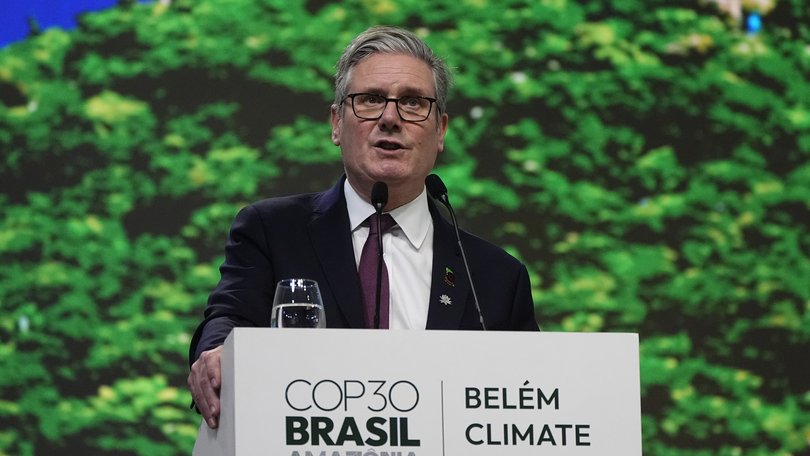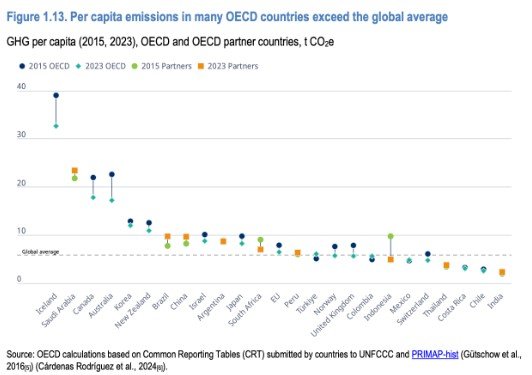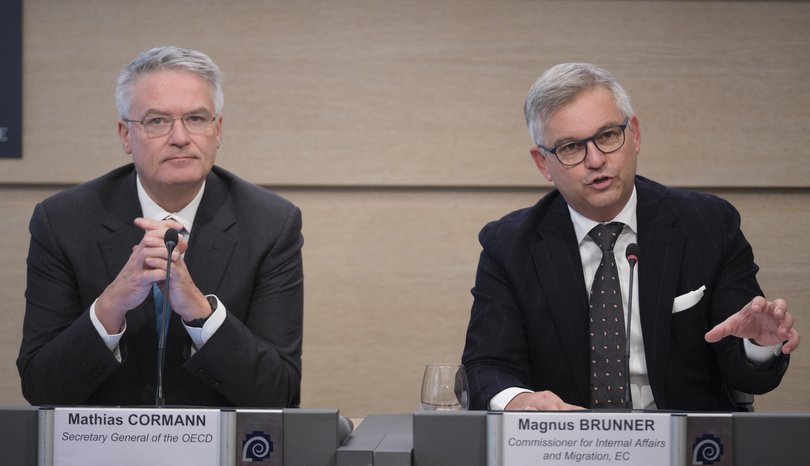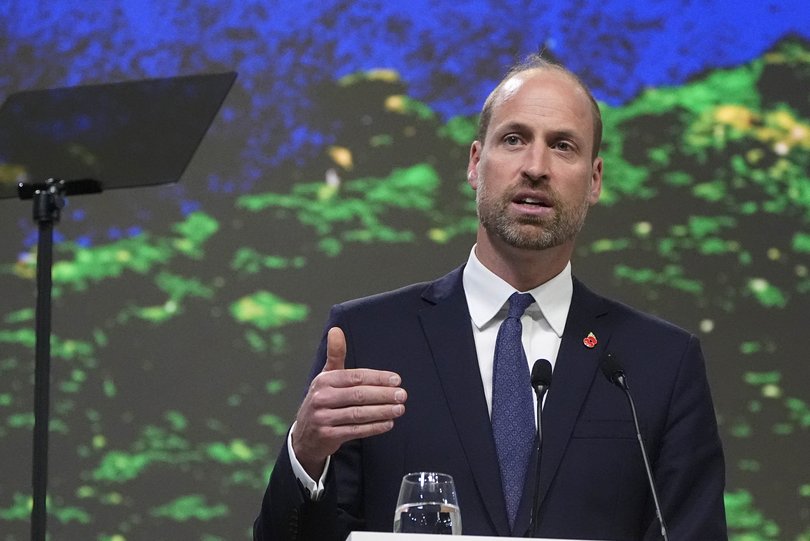COP30: OECD warns global climate action is stalling as Australia’s emissions triple world average
The OECD says Australia is still emitting carbon emissions three times higher than the global average.

The OECD says global progress on reaching net-zero goals is sagging and that Australia is still emitting carbon emissions three times higher than the global average.
The report said that in 2023, greenhouse gas emissions from 50 OECD and partner countries were around 8 per cent higher than the level required to meet 2030 goals.
The OECD said that the slowdown in countries reducing their carbon emissions could no longer be blamed on the COVID pandemic.
Sign up to The Nightly's newsletters.
Get the first look at the digital newspaper, curated daily stories and breaking headlines delivered to your inbox.
By continuing you agree to our Terms and Privacy Policy.The OECD, headed by former Finance Minister Mathias Cormann, who as a Liberal powerbroker led the party’s initial backlash to carbon pricing, said: “There is clear evidence of a global climate action implementation gap.”
The OECD said its measure of global climate action showed that measures to reduce the amount of greenhouse gases being emitted expanded by just one per cent in 2024, continuing a trend of slowdown since 2021.
“This can no longer be explained by the COVID-19 pandemic or the subsequent economic crisis: it reflects a loss of momentum in implementing effective policy responses,” the report said.
“Currently, countries are not on track to meet their existing – and insufficiently ambitious – commitments.
“With global emissions continuing to rise, and climate action slowing, the world remains off course to achieve both the 2030 targets and longer-term net-zero commitments.”

Mr Cormann said that realising the benefits of addressing climate change would require countries to “step up efforts towards meeting their commitments and select an ambitious, appropriate policy mix reflecting their unique circumstances and climate objectives.”
The OECD praised the UK for reducing its per capita emissions below the global average but singled out Australia and Canada as continuing to emit at a rate three times higher.

But it said the Federal Government’s safeguard mechanism, along with the EU’s emissions trading scheme imposed on maritime transport, drove the largest increase of this type of policy adopted by governments and was a “positive development.”
The EU is on track to meet its 2030 goals but this week, European climate ministers agreed to significantly weaken their 2035 targets, amid a growing backlash to climate measures across the continent and the rise of right-wing populist parties.
The OECD, China and India, which are not in the OECD, increased their carbon output by 5 per cent and 7.5 per cent respectively.
The OECD’s findings also come at a sensitive time in Australia, with the Coalition on the verge of dumping its support for net zero emissions goals, in a fight that is threatening the position of Opposition Leader Sussan Ley.
Nationals Senator Matt Canavan seized on the findings and said they were vindication of his party’s decision to dump support for net-zero by 2050.
“This OECD data confirms the National Party’s view that even rich, advanced countries are not taking action to get to net zero,” Senator Canavan told The Nightly.
“Australia won’t win any ‘bonus points’ by getting to net zero faster.
“Winning the net zero race by the length of a straight will just make Australians poorer, and it won’t even help the environment.
“The Australian Government has not even considered how much other countries have reduced their emissions when setting our 2035 targets.
“That makes no sense given that it is only global action that will reduce the risk of climate change, and rushing ahead on carbon emissions puts our industry at a disadvantage.”
The OECD timed the release of its report to coincide with the UN’s COP30 climate conference opening in Belem, Brazil, ten years after the landmark Paris summit.
Prime Minister Anthony Albanese, who wants Australia to host the summit next year, is joining US President Donald Trump and Chinese President Xi Jinping and the leaders of the world’s largest economies and carbon emitters in not attending.
However, Australia and China are both sending delegations, unlike the US, which is boycotting the event altogether. Mr Trump believes climate change is a con and wants to turbocharge oil and gas production.
Mr Albanese’s favoured left-leaning leaders in Europe, Britain’s Keir Starmer and France’s Emmanuel Macron, attended.
Sir Keir bemoaned the breakdown in global support for addressing climate change compared to the progress made in Paris.
“Today, sadly that consensus is gone, with some arguing this isn’t the time to act and saying tackling climate change can wait,” the UK Prime Minister told the COP30 summit.
He said the UK would continue with its carbon neutrality goals and identified the Labour government’s support for “the biggest nuclear building program in a generation” “to take back control of our energy system.”
In the UK, which legislated net zero goals under the former Conservative government, both the Tories and the populist Reform UK party led by Brexiteer Nigel Farage have vowed to scrap net zero.
Also speaking in Belem, Prince William said that when it came to climate change, he believed in “urgent optimism” and that it was important to chart the progress made.

But he said: “The road ahead will be tough.”
“We must transform the way we power our lives, produce our goods, move from place to place, and care for our land.
“But this is not just a challenge. It is a profound opportunity.
“An opportunity to build cleaner economies, restore nature, and improve the health and wellbeing of communities everywhere.”

